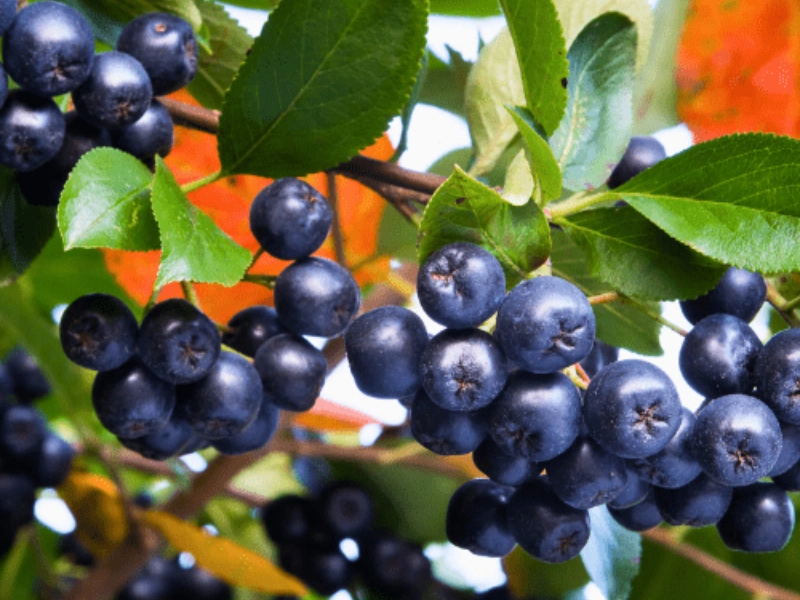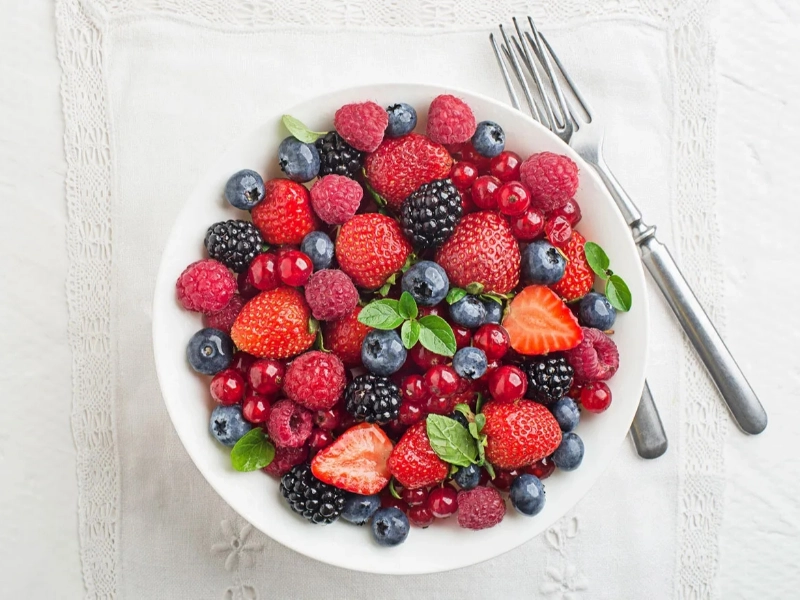Not only are berries taste great, but they also abound in vital nutrients that will greatly improve your everyday diet. These little fruits provide a wealth of health advantages from minerals and vitamins to antioxidants. We will discuss several kinds of berries in this post together along with their special nutritional profiles and useful techniques to include them into your meals. Find out how including berries into your diet will satisfy your taste buds and enable you to achieve your dietary requirements.
 Given their great antioxidant concentration, blueberries are sometimes praised as among the healthiest berries. Rich in anthocyanins, these small fruits have many health advantages and their vivid blue hue comes from Antioxidants fight oxidative stress in the body, therefore lowering the risk of chronic illnesses including cancer and heart disease. A terrific addition to any meal, blueberries are also a great source of dietary fiber, vitamin C, and vitamin K. Blueberries can be eaten as a snack, blended into smoothies, or added to morning oatmeal—all of which are easy ways to get them into your diet. Anyone trying to increase their nutrient intake has to have them since of their adaptability and health advantages.
Given their great antioxidant concentration, blueberries are sometimes praised as among the healthiest berries. Rich in anthocyanins, these small fruits have many health advantages and their vivid blue hue comes from Antioxidants fight oxidative stress in the body, therefore lowering the risk of chronic illnesses including cancer and heart disease. A terrific addition to any meal, blueberries are also a great source of dietary fiber, vitamin C, and vitamin K. Blueberries can be eaten as a snack, blended into smoothies, or added to morning oatmeal—all of which are easy ways to get them into your diet. Anyone trying to increase their nutrient intake has to have them since of their adaptability and health advantages.
 Not only are strawberries delightful, but they also are quite nutrient-dense. Essential for immune system, skin health, and collagen generation, vitamin C is found in great abundance here. More vitamin C comes from one cup of strawberries than from an orange! Furthermore included in strawberries are antioxidants, manganese, and folate, which support general health. Perfect for snacking, their natural sweetness can also be included to salads, yogurt, or desserts. Including strawberries in your regular diet can help you to readily boost your vitamin C consumption and treat taste-wise.
Not only are strawberries delightful, but they also are quite nutrient-dense. Essential for immune system, skin health, and collagen generation, vitamin C is found in great abundance here. More vitamin C comes from one cup of strawberries than from an orange! Furthermore included in strawberries are antioxidants, manganese, and folate, which support general health. Perfect for snacking, their natural sweetness can also be included to salads, yogurt, or desserts. Including strawberries in your regular diet can help you to readily boost your vitamin C consumption and treat taste-wise.
 Thanks to their outstanding fiber count, raspberries are another fruit that should find place in your diet. At roughly eight grams of fiber per cup, raspberries can support digestive health and prolong feelings of fullness. Reducing heart disease risk and preserving a healthy weight depend on fiber. Raspberries also abound in vitamins C and K as well as antioxidants used to ward against inflammation. Fresh raspberries, in smoothies, or as a top for cereals and desserts will taste great. Any meal would benefit from their sour taste and vivid color; their fiber count helps your general wellness.
Thanks to their outstanding fiber count, raspberries are another fruit that should find place in your diet. At roughly eight grams of fiber per cup, raspberries can support digestive health and prolong feelings of fullness. Reducing heart disease risk and preserving a healthy weight depend on fiber. Raspberries also abound in vitamins C and K as well as antioxidants used to ward against inflammation. Fresh raspberries, in smoothies, or as a top for cereals and desserts will taste great. Any meal would benefit from their sour taste and vivid color; their fiber count helps your general wellness.
 Regarding health advantages, blackberries are a nutrient-dense berry with great force. They abound in manganese and folate as well as vitamins C and K. Furthermore packed with strong antioxidants, blackberries could help lower the incidence of chronic diseases. Their great fiber count helps digestive health and may help control weight. Blackberries are great for baking, added to smoothies, or eaten raw. Their somewhat sour taste is great for both sweet and savory cuisine, hence they are a flexible component in your cooking. Blackberries taste great and will help you get more nutrients if you include them into your meals.
Regarding health advantages, blackberries are a nutrient-dense berry with great force. They abound in manganese and folate as well as vitamins C and K. Furthermore packed with strong antioxidants, blackberries could help lower the incidence of chronic diseases. Their great fiber count helps digestive health and may help control weight. Blackberries are great for baking, added to smoothies, or eaten raw. Their somewhat sour taste is great for both sweet and savory cuisine, hence they are a flexible component in your cooking. Blackberries taste great and will help you get more nutrients if you include them into your meals.
For good reason, acai berries have lately become well-known as a superfood. Antioxidants abound in these little, dark purple berries, especially anthocyanins, which improve heart function and help combat inflammation. Rich in good lipids, fiber, and vital minerals and vitamins as well, are acai berries Smoothie bowls or frozen purees are common places to find them, and they are simple to include into your diet. Including acai to your breakfast or snacks can satisfy your taste receptors and offer a nutrient boost. Acai berries are a great way to increase your daily nutrient intake since of its special taste and health advantages.
Although they are well-known for helping urinary tract health, cranberries have far more benefits than only that. Rich in vitamin C, fiber, and antioxidants, these tangy berries Cranberries' special chemicals, including proanthocyanidins, help stop bacteria from clinging to the urinary system, therefore lowering the risk of infections. Fresh, dried, or as juice, cranberries are delicious; but, to maximize their health advantages, pick unsweeteled kinds. Including cranberries in your diet can be as easy as tossing them into cereal, salads, or baked goods to provide a tasty approach to support your health.
Including berries in your regular meals may be fun and simple. Starting your day with a berry-packed smoothie combining blueberries, strawberries, and raspberries with yogurt or almond milk will help you For a taste and nutrient explosion, toss berries into your oatmeal or morning cereal. For more color and taste, sprinkle a few berries into salads. Fresh berries are a great snack; mix them with nuts and seeds to create another. Regularly including berries in your diet will increase your nutritional intake and allow you to savor the several health advantages these wonderful fruits provide.